
课件-全国-2016_九年级英语全册 Unit 2 I think that mooncakes are delicious Section A 3课件 (新版)人教新目标版.ppt

小寄****淑k
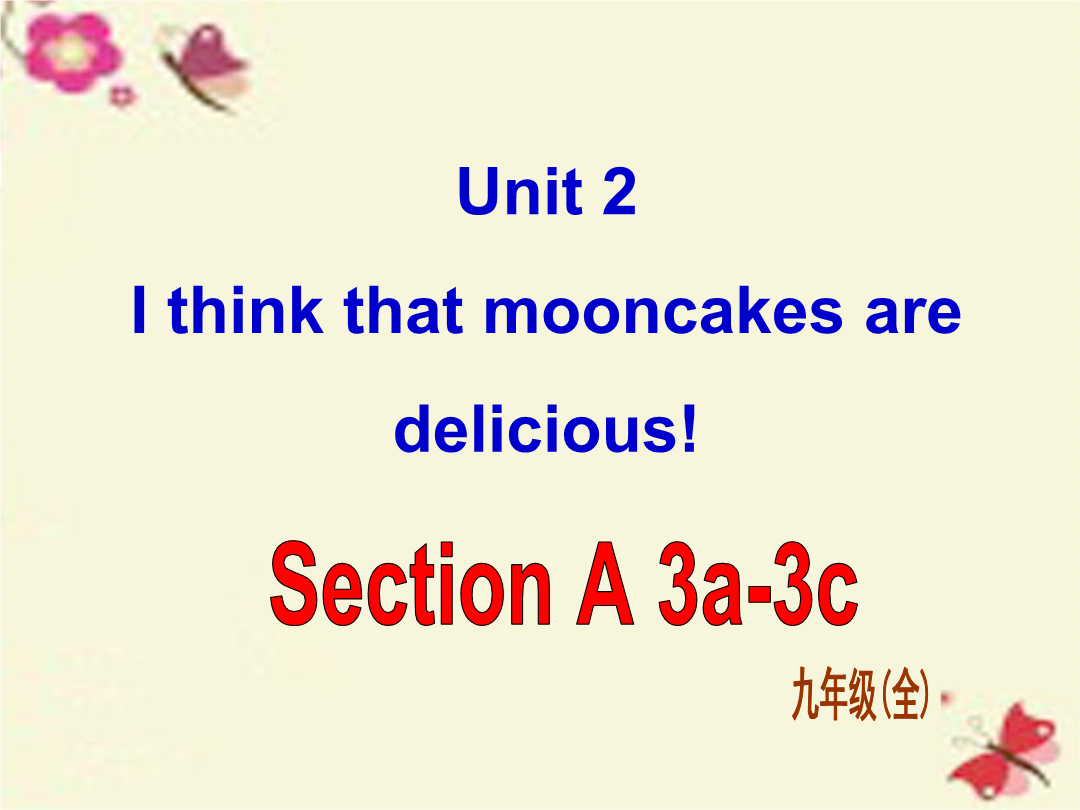
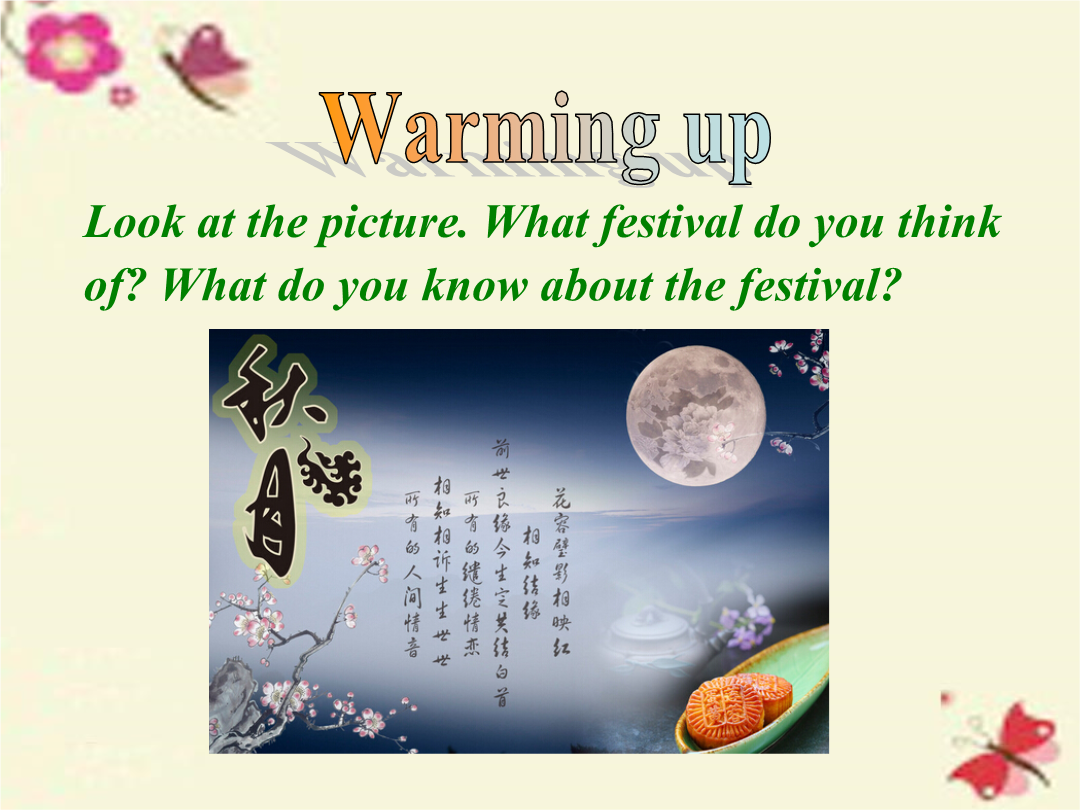
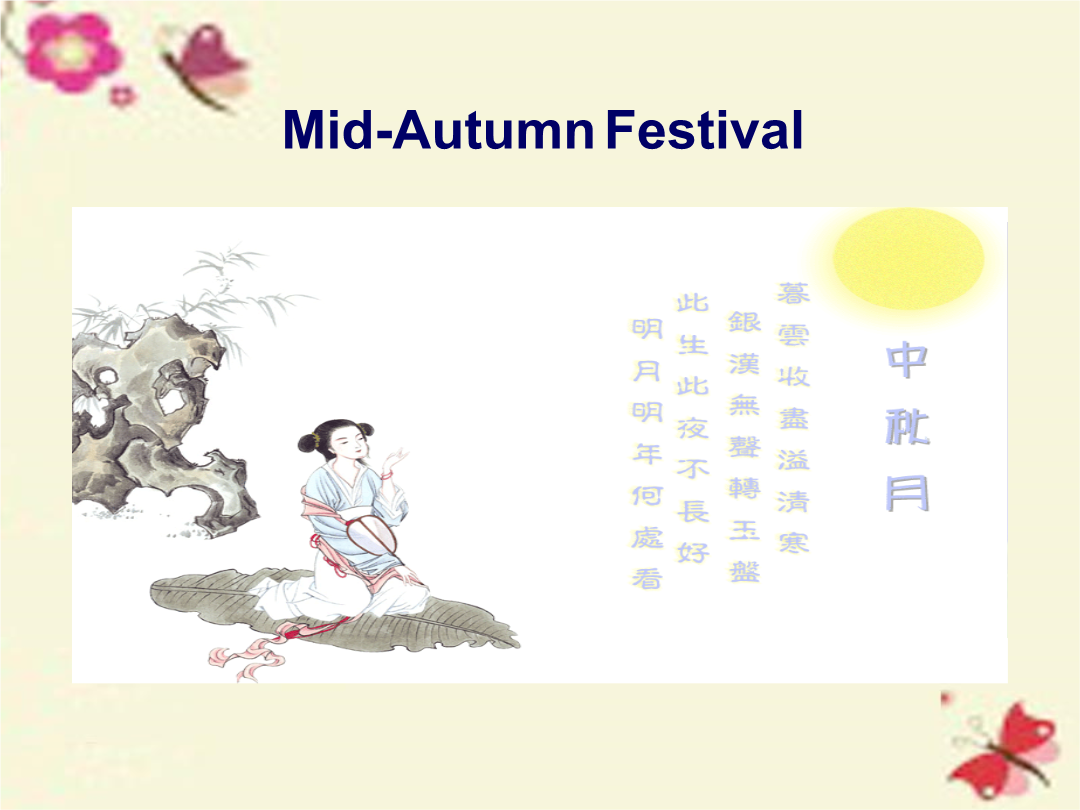
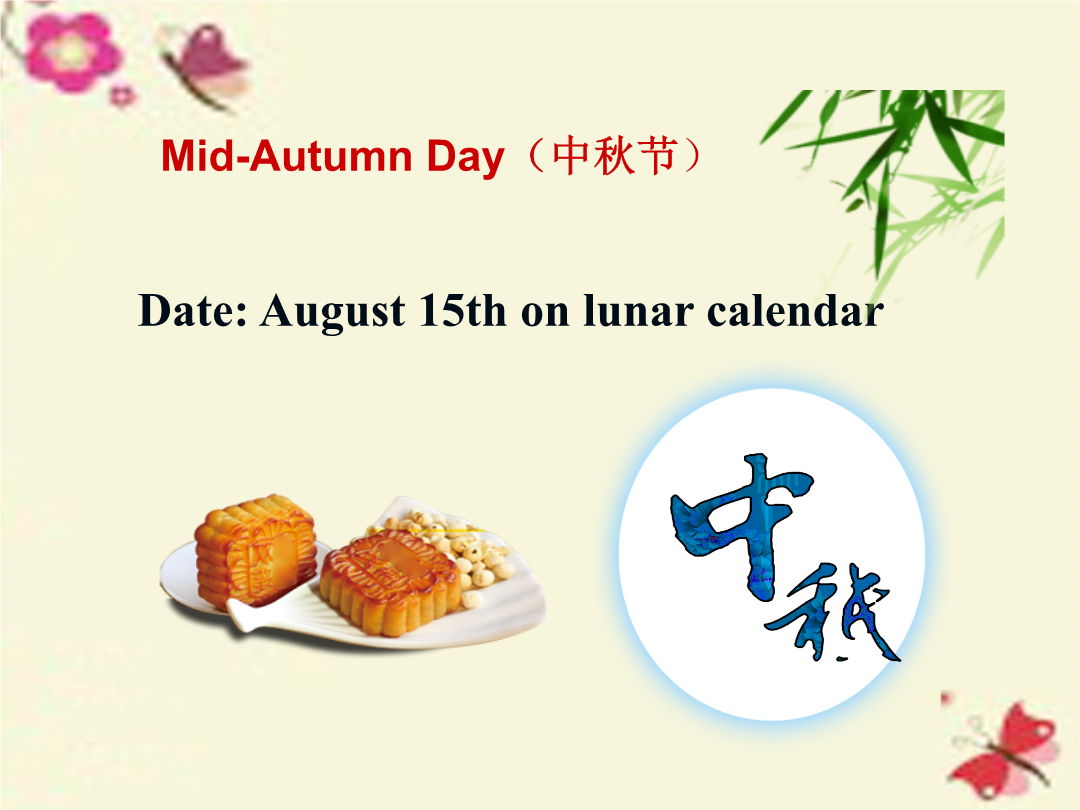
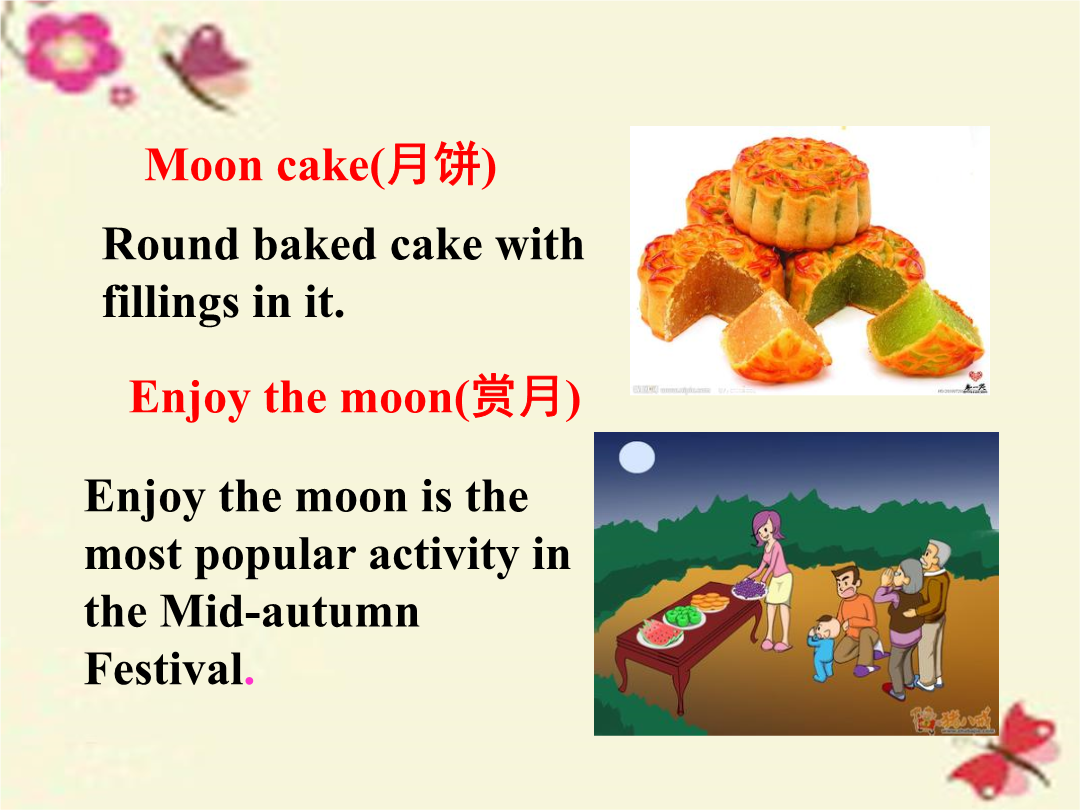

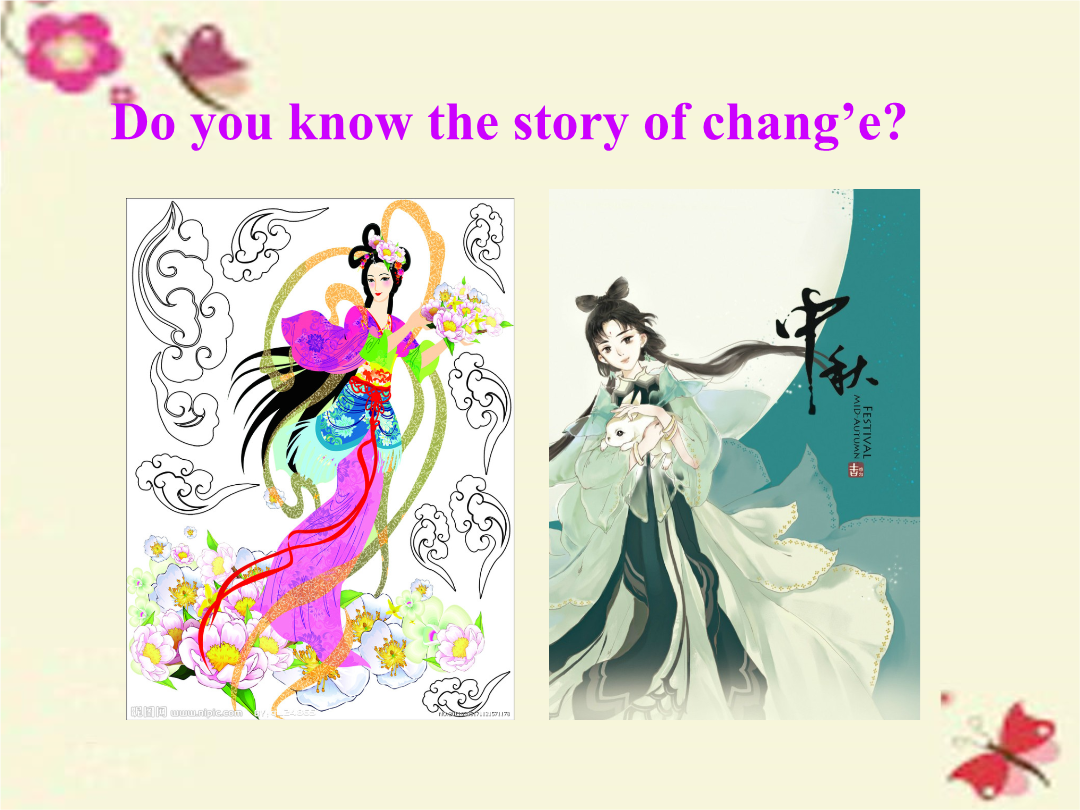

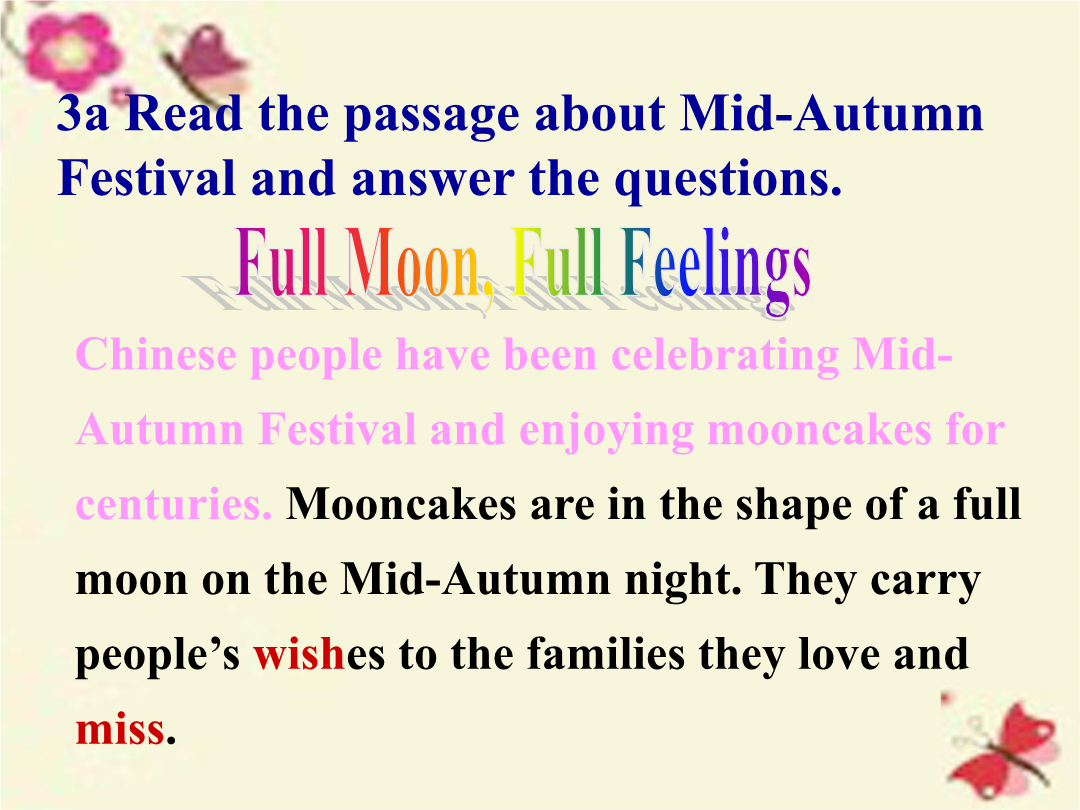

亲,该文档总共33页,到这已经超出免费预览范围,如果喜欢就直接下载吧~
相关资料

课件-全国-2016_九年级英语全册 Unit 2 I think that mooncakes are delicious Section A 3课件 (新版)人教新目标版.ppt
Unit2Ithinkthatmooncakesaredelicious!Lookatthepicture.Whatfestivaldoyouthinkof?Whatdoyouknowaboutthefestival?Mid-AutumnFestivalMid-AutumnDay(中秋节)Mooncake(月饼)DoyouknowChineseValentine’sDayDoyouknowthestoryofchang’e?3aReadthepassageaboutMid-AutumnFestivalan

课件-全国-2016_九年级英语全册 Unit 2 I think that mooncakes are delicious课件 (新版)人教新目标版.ppt
Unit2Ithinkthatmooncakesaredelicious!Lookatthepicturesandsaywhatfestivalstheyare.ChineseSpringFestival春节TheLanternFestival元宵节TheDragonBoatFestival端午节TheWaterFestival泼水节ChristmasDay圣诞节1.___TheWaterFestivalinThailand2.___TheDragonBoatFestivalinHongKong3.___

课件-全国-2016_九年级英语全册 Unit 2 I think that mooncakes are delicious Section A 2课件 (新版)人教新目标版.ppt
Unit2Ithinkthatmooncakesaredelicious!objectivesLet’senjoysomevideos.WaterFestival2aListentotheconversationbetweenWuMingandHarryandcirclethecorrectwordsinthesentences.2bWuMingdidalotoffunactivities,buttherewerealsodownsides.Listenagainandfillinthechart.A:W

课件-全国-2016_九年级英语全册 Unit 2 I think that mooncakes are delicious Section A 1课件 (新版)人教新目标版.ppt
Unit2Ithinkthatmooncakesaredelicious!SpringFestivalJanuary1LanternFestival,January15DragonBoatFestival,May5Mid-autumnDay,August15EasteraroundMarch22---April25HalloweenOctober31HalloweenParade(游行)ThanksgivingDaythelastThursdayofNovember1aMatchthepictureswi

课件-全国-2016_九年级英语全册 Unit 2 I think that mooncakes are delicious Section A 4课件 (新版)人教新目标版.ppt
SectionAGrammarFocus-4cWordsreviewmooncakeIknowthattheWaterFestivalisreallyfun.1.that,if和whether引导的宾语从句名词性从句nounclause试比较:DoyouknowwhoisthefirstChineseastronaut(宇航员)?Ourteachertoldusthattheearthgoesaroundthesun.Pleasetellmewhereshehasgone.Idon’tknowifhewi
